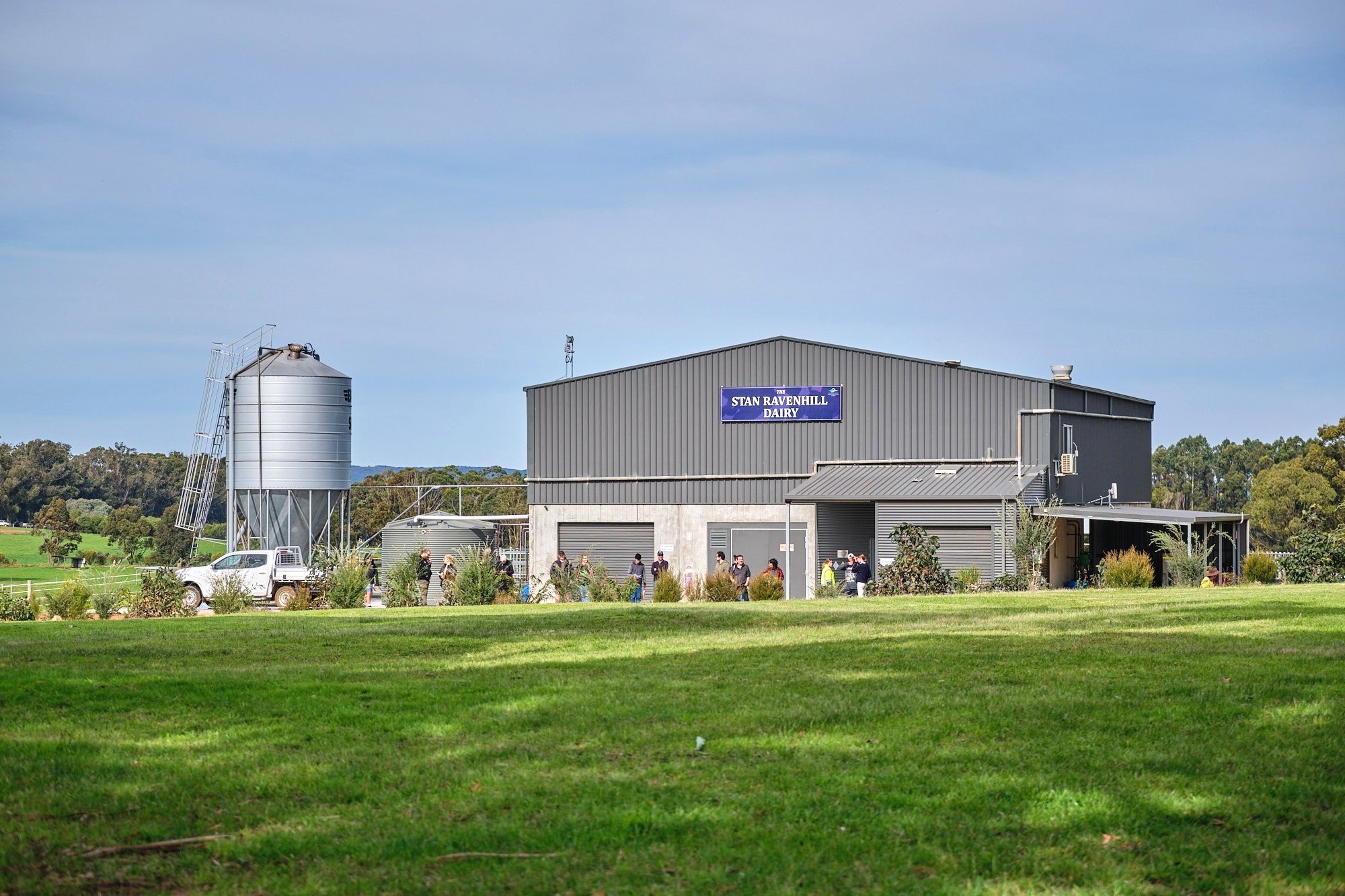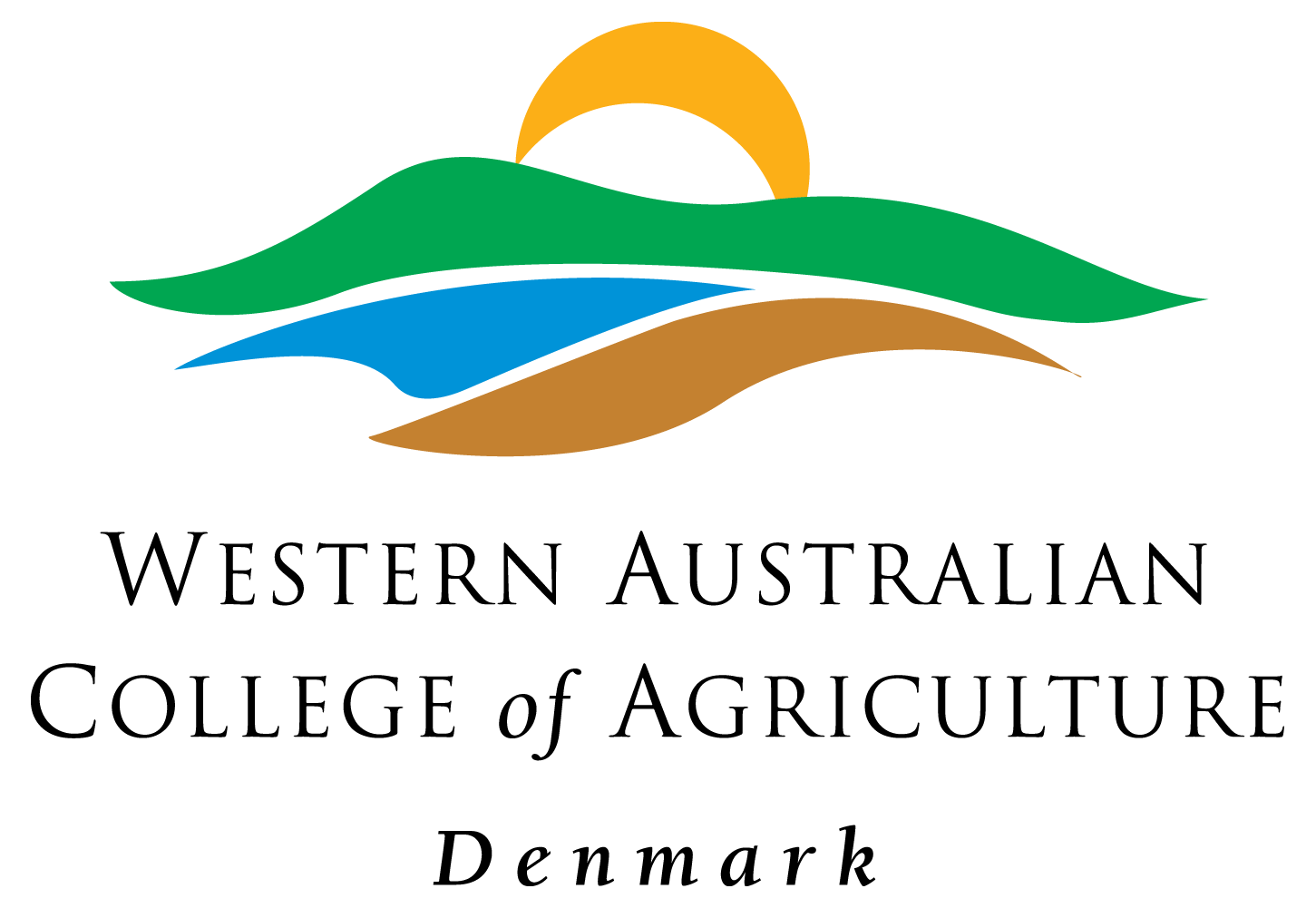
College Farm
The College farm comprises 560 hectares of prime agricultural land and operates a variety of enterprises for commercial and educational purposes.
All agricultural subjects are delivered using an Enterprise theme, integrated subjects and practical work.
-
Dairy, Simmental Stud and a commercial beef herd.
Students gain experience of all aspects of cattle operations including beef production, dairy production, stud management and artificial insemination. Each year, students prepare livestock for agricultural shows such as the Perth Royal Show, where they compete in led steer and cattle judging competitions. Students also compete at a number of country shows including the Katanning Show and Beverley Show. -
Fine wool Merino flock, Poll Dorset stud, Corriedale stud and Dohne x Merino flock.
Students gain experience in all aspects of fine wool production, prime lamb production and stud management. Artificial Insemination training takes place at the College along with fleece measurement which is carried out with all Merino ewes. A shearing short course is provided for students wanting to learn more about wool handling. Students are trained in judging all breeds of sheep and compete at the Perth Royal Show and various country RAS shows throughout the year.
-
The College has sufficient laying hens housed in a free range barn to supply eggs for the College kitchen. We also sell eggs in the local community here in Denmark.
-
The College farm is operated according to the best principles of sustainable agriculture. Students have been engaged in practical landcare projects at the school and in the community over many years. Landcare plots are developed and maintained by students who elect Conservation and Land Management as a field of study. There are significant employment opportunities in this field with the national focus on revegetation and climate change.
-
Horticulture is a significant industry in the Great Southern Region and South West Region The College runs both traditional and organic commercial vegetable growing enterprises as the core of its Plant Production course, enabling students to obtain industry specific qualifications to follow pursuits in the horticulture, viticulture and forestry industries. A variety of produce is grown at the College ranging from broccoli, garlic, rhubarb and kale to flower production.
-
Students have planned, planted and now maintain a one hectare vineyard on College land. Planted to Pinot Noir, Merlot, Shiraz and Chardonnay vines, the first commercial vintage took place in 2002.
The College has a link with a number of commercial vineyards with winemaking carried out under the instruction of James Kellie from Harewood Estate. A significant number of graduates from this course of study have successful careers in the viticulture industry. College wine is available for purchase on occasions such as Graduation and Open Day each year.
-
Students gain butchering, food-handling and hygiene experience in a small meatworks, maintained to industry standards. Meat from the farm is processed for the College kitchen. Students make sausages, cure and smoke hams, cut and vacuum-pack meat cuts.
“The Stan Ravenhill Robotic Dairy”, a state-of-the-art robotic dairy located at the College, commenced operations in June 2016 and was officially opened by the Hon. Terry Redman, MLA, Minister for Regional Development and Lands on Saturday, 3 September 2016.
The WA College of Agriculture – Denmark is the only College in Australia to install a robotic dairy of its kind – a first in Australia. DeLaval assisted in the development and design of the facility including herd management principles.
The College’s Automatic Milking System (robotic dairy) has two robot milkers that can handle 70 cows each, giving the College a 140 cow milking daily, an increase in 50 herd animals. The cows have free access to the Automatic Milking System (AMS) at any time of day and come up to milk themselves. Each cow is individually identified by the AMS via an ear tag, which can pick up if a cow has already been milked too recently and will lead that cow out via electronic gates. If not, the cow is allowed access and the robot cleans the udder and uses laser points to pick up where to attach each of the pumps.
Milking cows is not the only function of the robotic dairy, the College will be able to personalise feeding programmes for individual herd animals and be alerted if an animal has a problem. Important data is collected on each animal allowing customised programmes to be initiated to help overcome illness or over-milking.
According to DeLaval, approximately 30,000 farmers across the globe milk more than 1.2 million cows in automatic milking systems. “The WA College of Agriculture-Denmark is proud to have joined this global revolution.” said ex-College Principal Mr. Kevin Osborne, “Introduction of the robotic dairy will revolutionise the way in which we manage our dairy herd and teach dairy management to our students. Teaching our students with such advanced technology will help us to shape the future of dairy farming in Western Australia.”




